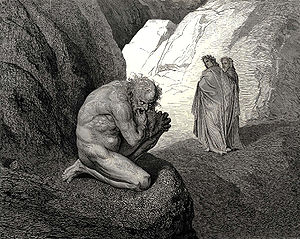Wikipedia:Griefing
This is an essay on the conduct policy. It contains the advice or opinions of one or more Wikipedia contributors. This page is not an encyclopedia article, nor is it one of Wikipedia's policies or guidelines, as it has not been thoroughly vetted by the community. Some essays represent widespread norms; others only represent minority viewpoints. |


Griefing is the act of chronically causing sudden annoyance to other members of an online community, or more specifically, intentionally disrupting the immersion of another player in their gameplay. The term griefer originated in the online gaming world, and while it is not commonly thought that Wikipedia is a game, the phenomenon can be found on most online communities, including here on Wikipedia.
Griefers are similar to trolls, with the main difference being that griefers will sometimes act in groups, in the form of tag team editing, to deliberately ridicule content on Wikipedia with which they disagree, to ridicule and harass editors associated with that content, and to interfere with the normal workings of the project. Trolls will instead more often act individually by baiting other members in an attempt to disrupt, and by causing other community members to waste time in dealing with the troll's actions. Both griefers and trolls are usually acting out in a desire for attention, or for what they perceive as revenge.
Identifying griefers[edit]
With the growth of external websites where participants sometimes discuss content at Wikipedia that they find humorous and/or offensive (sometimes referred to as "wikigroaning"), there has been a growth in the number of persons who come to Wikipedia motivated by discussions at those sites. In some cases, these persons come as meatpuppets, although their actions are usually not officially endorsed by the websites from which they came. They can arrive, often within a concentrated period of time, as single-purpose accounts, and may be reluctant to explain why so many editors with the same opinions have arrived at a page at the same time. If they become registered users, they may decorate their user-pages with material that mocks the subject matter that concerns them. For processes such as requests for comment, where editors depend upon transparency and the absence of canvassing, griefers can be very disruptive to the normal editing process.
Griefers may lack social skills. They fail to adjust to social norms and do not take criticism well. They may think it is funny to get a reaction from other people. On Wikipedia a griefer may be a POV warrior, a vandal, someone engaging in personal attacks, an editor who habitually lacks civility, or even an administrator sympathetic to other griefers. However, not all griefers are rude, and some may be unfailingly polite, while at the same time they are making deliberate attempts to disrupt the community. They may game the rules, possibly following the letter but not the spirit of a policy, and they may repeatedly violate social norms.
Reasons for griefing[edit]
There are as many motivations for griefing on Wikipedia as there are griefers, but common causes are:
- Emotional immaturity and/or instability.
- Adolescent rebellion against authority. A desire to push the limits and attempt to disrupt.
- Sociopathic behavior.
- Boredom. Some griefers feel that they want something to do, and if they're not interested in participating in a constructive manner, they will generate their "fun" by antagonizing others. This boredom generally arises due to a lack of sufficient stimulus or creative outlets that can sometimes be the result of excessive regulation and moderation by authoritarian personalities and overly broad interpretation about what sort of activities constitute 'griefing' (see, for example, Linden Lab's definition of "broadly offensive").
- Seeing no other recourse to address systemic problems which result in Wikipedia's inability to rid itself of bad characters.
- Amusement derived from other people's reactions.
Responding to griefers[edit]
In terms of dealing with griefers, the community must eventually make a cost–benefit analysis to determine whether a participant's contributions justify the loss of morale they inflict on other users.
Dealing with a griefer is often dependent on the exact nature of their activities.
- Sometimes griefers should simply be ignored. See Extinction (psychology).
- Sometimes, with effort on the part of other good members of the community, a griefer may be socialized if they can be given sufficient attention and brought back to a more cooperative standard of behavior. One way to handle suspected griefers is to politely ask about their concerns and explain constructive ways to raise those concerns in a socially acceptable manner.
- If positive engagement does not lead to improvement, habitual griefers should be politely, but firmly, asked to leave the community.
- In any case, editors and administrators should recognize griefing when it occurs, and, as with any other form of disruptive editing, endeavor not to let it impair the quality of Wikipedia's content.
See also[edit]
Note[edit]
- ^ Čeština. "The Divine Comedy by Dante Alighieri, Translated by Henry Wadsworth Longfellow, Inferno, Canto VII". En.wikisource.org. Retrieved 2013-12-22.
